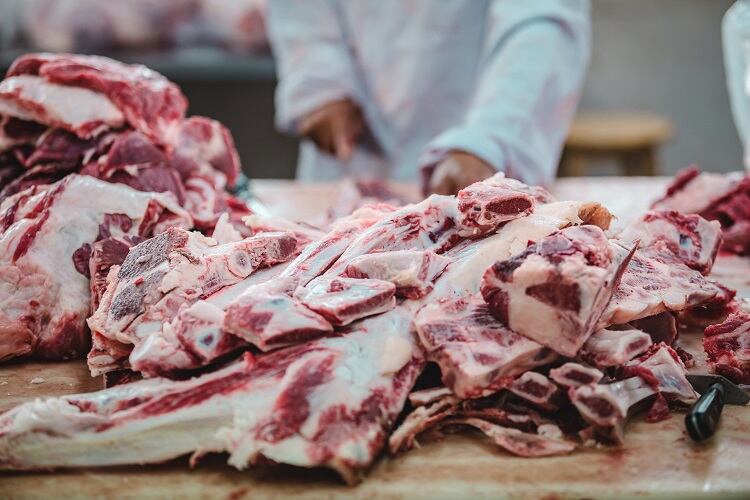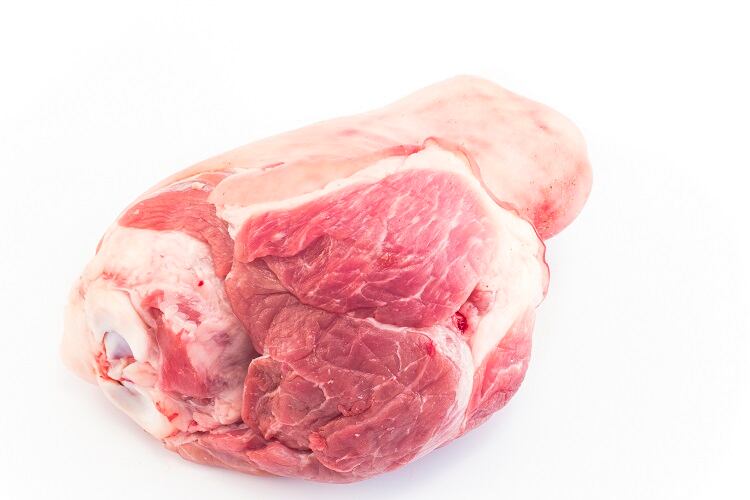Next month will mark one year since the first case of COVID-19 was reported to the World Health Organization (WHO). And only now, close to 12-months on, are positive reports of coronavirus vaccine trials bringing hope of a ‘COVID-free world’.
The inevitable question concerning how best to allocate the first batches of doses once approved has prompted the meat sector to throw their hand in the air.
Together with the Joint Committee on Vaccination and Immunisation, the Food Standards Agency, and the Northern Ireland Meat Exporters Association, the British Meat Processors Association (BMPA) wants the Government to consider putting key workers in meat factories on the list of early recipients.
COVID-19 trials bring hope to meat sector
Of the multiple coronavirus vaccines currently being pushed through clinical trials, four have been making headlines in Europe of late: Russia’s Sputnik V, and the yet-to-be named experimental vaccines developed by Oxford University and AstraZeneca, Pfizer and BioNTech, and Moderna and Pfizer.
The latter two have proved close to 95% effective at preventing disease in late-stage clinical trials, with Pfizer applying for a license in the US and the UK. Earlier this week, the Oxford-AstraZeneca vaccine was found to protect 70.4% of people from becoming ill. If a lower dose is administered, results reveal this could be boosted to 90%.
The UK has secured vaccine doses from many of the main manufacturers in the running, including 100m from Oxford-AstraZeneca, 60m from Novavax, 50m from BioNTech and Prizer, and on Monday, the Government announced it had secured five million from Moderna – if approved by regulators.
Once sufficient supplies of a proven vaccine have been made to available to at-risk groups, such as health and social care workers, the meat sector wants the Government to ‘extend prioritisation’ for vaccinations to include meat factory workers.
“This would provide much needed protection and comfort to this at-risk group and the communities in which they live as well as ensuring that the critical food supply chain continues to run smoothly,” said BMPA president Nick Allen.
The ‘cold truth’ of meat processing
While the coronavirus pandemic has affected multiple food sectors, meat processing has undeniably been one of the hardest hit.
In the US, meatpacking facilities were reported to have been running at 95% average capacity compared in 2019. In South America, Brazil’s meat processing industry was hit by multiple outbreaks.
In Europe, a significant number of employees tested positive for COVID-19 at meat facilities in Germany – including at Muller Fleisch’s site in Baden-Wurttenberg, Westfleisch’s factory in Coesfeld, Munster, and at Tonnes’ abattoir in Gutersloz.
And in the UK, more than 150 workers were infected with the virus at a chicken processing site in Anglesey. The outbreak has also impacted plants in Wrexham and West Yorkshire.
“The nature of food processing means that we have a cold factory environment which is challenging,” said Allen, referencing COVID-19’s stability in cold conditions.
“In addition, the rural locations of many meat plants mean that workers often opt for house-sharing and car-sharing in the absence of other types of accommodation and transport. These two factors that were once simply part of the job, mean that our key workers face extra challenges and a higher risk of contracting COVID-19.”
Prioritising sectors
It is unlikely the meat processing sector will be the only one vying for prioritisation of a novel vaccine, yet Allen is hopeful the food industry will be high up on the list.
“The Government is going to have a lot of calls to prioritise sectors,” he told FoodNavigator, “but I am encouraged that given the food sector is already reasonably high on the priority list for mass and rapid testing schemes, one [hopes] it is also on their mind to apply this to vaccination programmes.”
Of course, vaccination programme priorities will be more challenging for Government, the BMPA chief explained, as on the whole most people will want to be vaccinated as soon as possible.
“It goes without saying that health workers and the vulnerable have to be put first.”





